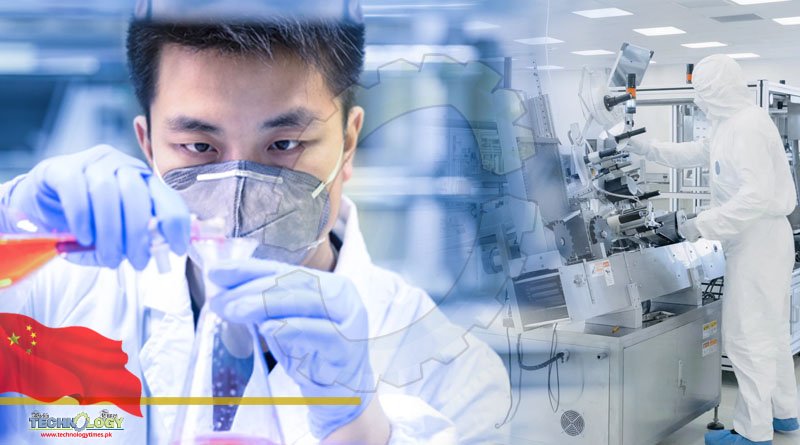Chinese biotech companies are increasingly seeking globalization, MNCs are actively picking up Chinese assets to strengthen local cooperation.

Investing in early-stage multicenter trials is imperative to achieve global commercialization for Chinese biotech companies, but a US site may not be necessary, said speakers at the Chinatrials meeting held in Shanghai earlier this month, writes The Pharma Letter’s local correspondent.
“A Phase I US trial only makes sense if you have great confidence in the asset and you are determined to sell it in the US,” said Jason Yang, chief executive of Chinese biotech firm CStone Pharmaceuticals’. Running a US site is costly, and it is hard to get quality patients in the country, he added. “Patients in the US are usually very sick due to previous treatments. These are not good quality patients for Phase I studies,” Dr Yang said.
Instead, he suggested companies look at Australia. “You get the racial diversity, you get good quality patients and you see a much lower cost than running an US trial,” Dr Yang said.
CStone is running a PD1 monoclonal antibody (Mab) CS1003 in Australia. It also gained approval to run studies in the country for CS5001, a ROR1 targeted ADC to treat tumors that CStone in 2020 bought ex-South Korea rights from the Korean biotech LegoChem Biosciences.
Dr Yang’s view was echoed by two of the panelists – Helen Jiang, chief medical officer (CMO) at Zhejiang YST Biotech, and Henlius’ president Jason Zhu. Both companies have ongoing studies in Australia.
“It took us only 11 weeks to dose the first patient, compared with about six months in China,” said Dr Jiang. Relatively easier patient recruitment process and experienced principle investigators are among the benefits that Australia offers, she continued.
Another benefit is dosing, added Henlius’ Mr Zhu. “Depending on the asset and each company’s analysis on risk-benefit ratio, a company can be a little aggressive in dosing in Australia. Whereas in China dose escalation usually takes more time as Chinese authorities tend to be more conservative,” he said.
But there are also challenges, said Dr Jiang. “For example, you can’t easily find as many cancer patients in Australia as in China, and Australia also doesn’t have enough labs to conduct biomarker testing,” she cautioned.
At the conference, speakers from Chinese biotech companies said that they felt shivering from the market downturn and prioritizing assets was important to weather through the difficult time.
“After reviewing our pipeline, we prioritized three assets to make sure that they will get the most of our resources,” said Chih-Yi Hsieh, CMO at Impact Therapeutics, a clinical stage biotech that relies largely on investments for operation.
Its top three assets are the PARP inhibitor IMP4297, now in late stage studies in China to treat ovarian cancer and in Phase II global studies to treat prostate cancer; Wee1 inhibitor IMP7068, and ATR inhibitor IMP9064, both in Phase I global studies targeting various cancers.
“For the ‘nice to have’ assets, we probably need prioritize indications. We have to be smart with our limited resources when the market is turning cold,” Dr Hsieh said.
EpimAb’s CMO Bin Peng agreed. Also a clinical stage biotech that does not have any proved drugs in the market, the company, which focuses on bispecific MAbs, is conducting trials in China, the USA and Australia for three assets – EMB01, a EGFR/cMET MAb to treat NSCLC; EMB02, a MAb targeting PD1/LAG3 for solid tumors, and EMB06, which targets BCMA/CD3 to treat multiple myeloma.
“Conducting global trials is getting more expensive each year and we are finding our ways to save costs,” Dr Peng said. For example, the company cut patient numbers in the US and adding more patients in China to keep racial diversity and a balanced number.
Dr Peng continued that while doing studies in China is getting more costly, especially in wealthy cities like Shanghai, it is still much lower than in the USA.
Cash flow might not the be biggest concern for Hutchmed (Nasdaq: HCM), which has drugs sold in the market, but the company is worried about business overseas under US-China tension.
“We have been pushing hard on global commercialization, which is not easy under the current US-China relationship,” said Hutchmed China CMO Michael Shi. Hutchmed, which focuses on chemical drugs and a long-term Chinese partner with AstraZeneca, has been investing heavily in R&D to strengthen its capability in innovation. Dr Shi said the company aims to be a globally recognized novel drug developer.
“We are also investing in biologics to explore possibilities in combo therapies and ADCs with our expertise in small molecules,” he added.
ADCs, along with cell/gene therapies are two areas seeing more competitive Chinese biotech companies challenge against their western counterparts, and this high-level of research capability is likely to bring Chinese biotechs more opportunities to partner with big pharmas, said Evan Zeng, a Shanghai-based partner with LEK Consulting.
Kelun-Biotech, for example, had two clinical stage ADC assets licensed out to MSD in July and May. In June, DAC Biotechnology signed a deal with Jassen to co-develop novel ADCs.
“Our survey showed while Chinese biotech companies are increasingly seeking globalization, MNCs are actively picking up Chinese assets to strengthen local cooperation,” Mr Zeng said.
Originally published at The Pharma Letter
